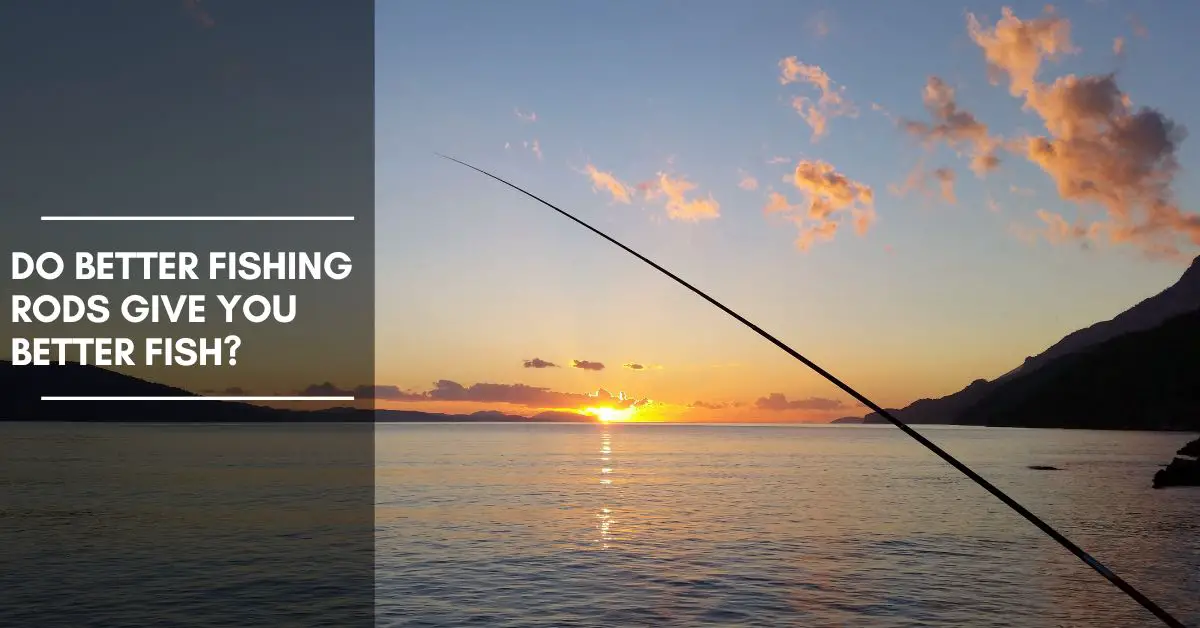Fishing is a popular pastime for many, but there’s always the question of how much the gear affects your success. In this article, we will delve into the topic of whether better fishing rods lead to better fish. We’ll explore the role of fishing rods in successful fishing, the characteristics of high-quality rods, and how to choose the right rod for your goals.
The Role of Fishing Rods in Fishing Success
The Importance of Rod Quality
Fishing rods play a significant role in determining your success on the water. A high-quality rod offers a better feel for the fish’s movements, improved casting accuracy, and increased durability. Using a well-crafted rod will make you more likely to hook and land fish effectively.
The Right Rod for the Right Situation
Not all fishing rods are created equal. Different situations call for different types of rods. For example, fishing for small panfish requires a different rod than fishing for large saltwater species. Understanding the nuances of rod selection and using the appropriate rod for the situation can significantly improve your fishing experience.
Characteristics of High-Quality Fishing Rods
Material
High-quality fishing rods are typically made from graphite, fiberglass, or both materials. Graphite rods are lightweight and offer excellent sensitivity, while fiberglass rods are known for their durability and strength. Composite rods strike a balance between sensitivity and durability, offering anglers the best of both worlds.
Action
The action of a rod refers to how quickly it returns to its original shape after being bent. Fast action rods are more sensitive and offer quicker hooksets, while slow action rods provide more casting distance and better shock absorption. Medium-action rods fall in between and are suitable for a wide range of applications.
Length
Rod length plays a crucial role in casting distance and control. Longer rods allow for longer casts, while shorter rods offer increased accuracy and control in tight spaces. Selecting the right length for your fishing situation can significantly impact your success.
Guides
High-quality rods have evenly spaced guides made from durable materials, such as ceramic or stainless steel. These guides help to reduce line friction, improve casting distance, and ensure a smooth retrieval of your line.
Handle
A well-designed handle is comfortable to grip and provides a secure hold, even when wet. High-quality handles are often made from cork, EVA foam, or a combination of both materials.
Enhancing Your Fishing Experience
Sensitivity
A high-quality fishing rod offers increased sensitivity, allowing you to feel the slightest nibble or change in your lure’s movement. This heightened sensitivity helps you detect more bites and ultimately catch more fish.
Castability
Better fishing rods provide improved castability, enabling you to cast farther and more accurately. This can be crucial when trying to reach specific fishing spots or when trying to cast in challenging conditions, such as strong winds.
Durability
Investing in a high-quality fishing rod means investing in durability. Quality materials and construction ensure that your rod will last longer and withstand the stress of fighting powerful fish or rough handling.
Matching Your Rod to Your Fishing Goals
Species-Specific Rods
When selecting a fishing rod, it’s essential to consider the species of fish you plan to target. Some rods are designed explicitly for certain species, such as bass or trout, while others are more versatile. Understanding the characteristics and habits of your target species can help you choose a rod that increases your chances of success.
Fishing Techniques
Different fishing techniques require different types of rods. Here are some common techniques and the ideal rods for each:
Spinning
Spinning rods are designed for use with spinning reels and are generally lightweight with fast action. They’re well-suited for casting light lures and using live bait. These rods are perfect for targeting a variety of species, including panfish, trout, and bass.
Baitcasting
Baitcasting rods are designed for use with baitcasting reels and typically have a more substantial backbone and a fast to extra-fast action. They’re ideal for casting heavier lures and using various techniques, such as flipping, pitching, and deep cranking. Baitcasting rods are often used for targeting larger freshwater species like bass, pike, and muskie.
Conclusion
While a better fishing rod won’t guarantee you’ll catch better fish, it can undoubtedly enhance your overall fishing experience and increase your chances of success. By understanding the characteristics of high-quality rods and selecting the right rod for your target species and preferred techniques, you’ll be well on your way to a more enjoyable and fruitful day on the water.
FAQs
- Do I need to spend a lot of money on a fishing rod to catch better fish? While investing in a high-quality rod can improve your chances of success, you don’t necessarily need to break the bank. There are plenty of affordable options that offer excellent performance.
- What is the best all-around fishing rod for a beginner angler? A medium-action, 6.5 to 7-foot spinning rod is a versatile choice for beginners. This type of rod is suitable for various species and techniques, making it an excellent starting point.
- How do I maintain my fishing rod to ensure it lasts longer? Proper maintenance includes cleaning your rod with mild soap and water after each use, checking for any damage, and storing it in a protective case or rod rack when not in use.
- What is the best type of fishing rod for saltwater fishing? When fishing in saltwater, choose a rod made from corrosion-resistant materials, such as graphite or composite. Additionally, opt for rods with guides made from ceramic or stainless steel to withstand the harsh saltwater environment.
- How often should I replace my fishing rod? The frequency of replacement depends on how often you fish and the quality of your rod. With proper care and maintenance, a high-quality rod can last for many years. However, if you notice a decrease in performance or signs of wear and tear, it might be time to consider a replacement.

